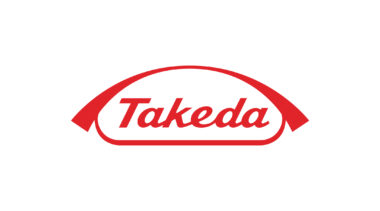- New research reveals one third of Australians do not believe practising COVID-safe behaviours or staying up to date with vaccinations to protect against COVID-19 is important.1
- With high numbers of Australians still being admitted to hospitals and ICUs with COVID-19,2 the majority of older Australians believe that future emergence of new COVID-19 variants will not significantly impact them.1
- Experts are urging Australians to maintain COVID-safe measures ahead of the holiday season.
SYDNEY, AUSTRALIA, 19 December 2023 – Results from new research conducted during Australia’s eighth COVID-19 wave show that one-third of Australians do not believe that COVID-safe measures, such as staying up to date with vaccinations, wearing masks, hand sanitisation and social distancing, are important to protect against COVID-19.1
The COVID Community Sentiment Index, a quantitative research survey regularly commissioned by Pfizer Australia, canvassed Australians’ views on COVID-19 in November 2023. Results showed that one in three (33%) Australians do not think COVID safe measures, such as wearing masks, hand sanitisation and social distancing are important for protection against the disease.1 One-third (34%) also do not believe that staying up to date with vaccinations is important.1 Additionally, just under two-thirds of Australians (64%) do not think that new COVID-19 variants will have a significant impact on them in one year’s time.1
Professor Robert Booy, Infectious Diseases Specialist, University of Sydney, is urging Australians to resist complacency ahead of the holiday season. “As much as we would all like to forget about COVID-19, COVID-19 is not done with us. Evidence shows that the disease continues to evolve and have significant impact in our communities, especially those at higher risk of severe illness. With COVID-19 part of our new reality, we need to continue to embed some habits and measures to protect ourselves and our communities,” Professor Booy said.
The research also found that more than half (57%) of older Australians, who are often at higher risk of severe disease, believe new variants of COVID-19 will not have a significant impact on them a year from now.1 Moreover, one-third (31%) of older Australians think that vaccinations will not be important for protection against COVID-19 one year from now.1
Federal Government data shows that as of 1 December an average of 165 Australians a day were admitted to hospital with COVID-19 and 57 people were in intensive care units (ICU) with COVID-19 complications.2 A recent report also found that 2.5 million people aged 65 years or older were not up to date with their six monthly COVID-19 vaccine dose, two million more than in 2022.3 In addition, three-quarters of Australians aged 75 years or older had not received a COVID-19 vaccination in the six months leading up to November 2023.3
“With many people travelling and gathering to celebrate the holiday season, it’s important to remember that COVID loves a crowd. Even though most healthy Australians are protected against severe COVID, there remain a few million vulnerable people who have not had an updated COVID-19 vaccination in the last six months. Taking precautions this Christmas is only sensible,” Professor Booy said.
The Federal Government recommends all Australians aged five years and over should be vaccinated against COVID-19 to receive the best protection against serious illness.4,5 The Australian Technical Advisory Group on Immunisation (ATAGI) provides detailed guidance on COVID-19 vaccination recommendations for Australians based on age and risk factors for serious illness, including who should receive an additional 2023 COVID-19 vaccination dose.5 For more information about ATAGI recommended COVID-19 vaccination doses visit www.health.gov.au.
**ENDS**
About the survey
Pfizer Australia commissioned a series of quantitative research surveys to canvass Australians’ understanding and perceived risk of COVID-19. The COVID Community Sentiment Index anonymous online surveys were conducted between 7-10 November 2022, 10-12 May 2023 and 27-30 November 2023 and each sampled 1,000 Australians aged 18 years and older. The survey samples resembled the Australian population in terms of gender, age, state, and location.1,6,7
About Pfizer: Breakthroughs That Change Patients’ Lives™
At Pfizer, we apply science and our global resources to bring therapies to people that extend and significantly improve their lives. We strive to set the standard for quality, safety and value in the discovery, development and manufacture of health care products, including innovative medicines and vaccines. Every day, Pfizer colleagues work across developed and emerging markets to advance wellness, prevention, treatments and cures that challenge the most feared diseases of our time.
Consistent with our responsibility as one of the world's premier innovative biopharmaceutical companies, we collaborate with health care providers, governments and local communities to support and expand access to reliable, affordable health care around the world. For more than 170 years, we have worked to make a difference for all who rely on us. For more information, please visit: www.pfizer.com.au.
Disclosure Notice
The information contained in this release is as of 18 December 2023. Pfizer assumes no obligation to update forward-looking statements contained in this release as the result of new information or future events or developments.
References
- Pfizer Australia and New Zealand. Data on file, November 2023.
- Australian Government. COVID-19 reporting. Available at: https://www.health.gov.au/topics/covid-19/reporting (last accessed 13 December 2023).
- Grattan Institute. A fair shot: How to close the Vaccination Gap. Available at: https://grattan.edu.au/wp-content/uploads/2023/11/A-fair-shot-How-to-close-the-vaccination-gap-Grattan-Institute-Report.pdf (last accessed 13 December 2023).
- Australian Government. Who can get vaccinated. Available at: https://www.health.gov.au/our-work/covid-19-vaccines/who-can-get-vaccinated (last accessed 13 December 2023).
- Australian Government. Australian Immunisation Handbook: COVID-19. Available at: https://immunisationhandbook.health.gov.au/contents/vaccine-preventable-diseases/covid-19 (last accessed 13 December 2023).
- Pfizer Australia and New Zealand. Data on file, November 2022.
- Pfizer Australia and New Zealand. Data on file, May 2023.
Contact details:
[email protected] and [email protected] / +61 491 619 319 (on behalf of Pfizer)

